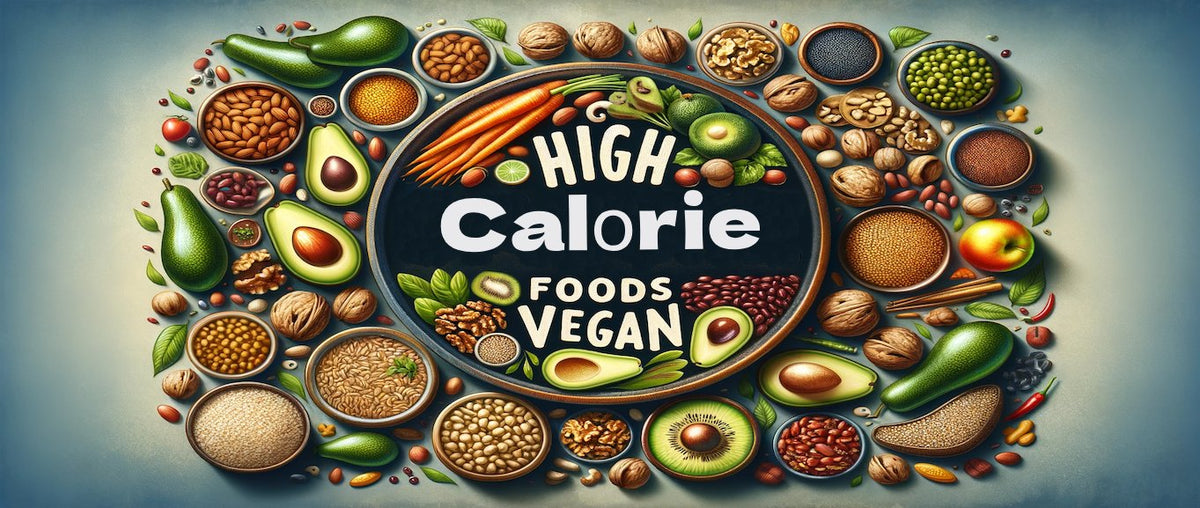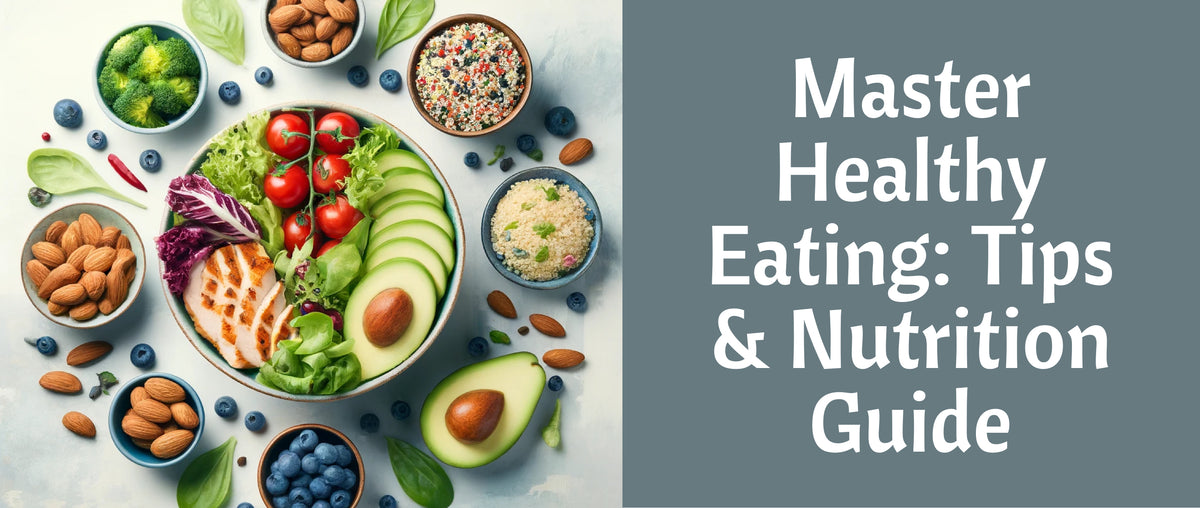Strategies for Sustainable Weight Loss
Achieving and maintaining a healthy weight is a crucial aspect of overall well-being. Sustainable weight loss isn't about quick fixes or extreme diets; it's about adopting lasting habits that promote a healthier lifestyle. This comprehensive guide will provide you with evidence-based strategies to help you achieve your Vegan Diet Plan for Weight Loss goals in a sustainable manner.
Why Am I Overweight?
Understanding the underlying causes of weight gain is the first step towards sustainable weight loss. Several factors can contribute to being overweight, including:
- Genetic Factors: Your genes can affect how your body stores fat and processes food. Some people are naturally predisposed to gain weight more easily than others.
- Environmental Factors: Lifestyle choices such as a sedentary lifestyle, unhealthy eating habits, and lack of physical activity play a significant role in weight gain.
- Health Conditions: Certain medical conditions, like hypothyroidism, polycystic ovary syndrome (PCOS), and metabolic syndrome, can contribute to weight gain.
- Emotional Factors: Stress, anxiety, and depression can lead to emotional eating, which often involves consuming high-calorie, low-nutrient foods.
Setting Realistic Weight Loss Goals
Importance of Goal Setting
Setting realistic weight loss goals is essential for long-term success. Unrealistic goals can lead to frustration and disappointment, whereas achievable targets can motivate and inspire you to continue your journey.
SMART Goals for Weight Loss
- Specific: Clearly define what you want to achieve.
- Measurable: Track your progress with measurable criteria.
- Achievable: Set goals that are attainable.
- Relevant: Ensure your goals are relevant to your overall health.
- Time-bound: Set a timeframe for achieving your goals.
Short-term vs. Long-term Goals
Short-term Goals: These are smaller, manageable targets that you can achieve in a few weeks or months. For example, losing 5 pounds in a month.
Long-term Goals: These are broader targets that you aim to achieve over a longer period, such as losing 50 pounds in a year.
Set Yourself a Weight Loss Target
Decide on a realistic and healthy weight loss target. Consult with a healthcare professional to determine a suitable goal based on your current weight, age, and overall health.

Balanced Diet and Nutrition
Understanding Macronutrients and Micronutrients
A balanced diet includes the right proportions of macronutrients (carbohydrates, proteins, and fats) and micronutrients (vitamins and minerals). Each plays a vital role in maintaining your health and supporting weight loss.
Importance of Whole Foods
Whole foods, such as fruits, vegetables, whole grains, nuts, and seeds, are rich in essential nutrients and help you feel full longer, reducing the temptation to overeat.
Meal Planning and Portion Control
Planning your meals in advance and being mindful of portion sizes can prevent overeating and ensure you're consuming the right amount of nutrients. Opt for high protein snacks and low-calorie options to keep your energy levels stable throughout the day.
Avoiding Fad Diets
Fad diets promise quick weight loss but are often unsustainable and can be harmful to your health. Instead, focus on making gradual changes that you can maintain in the long run.
Eat a Balanced Diet
Incorporate a variety of foods into your diet to ensure you're getting all the necessary nutrients. Include healthy snacks for kids and family-friendly meals that everyone can enjoy.
Physical Activity
Benefits of Regular Exercise
Regular exercise is crucial for weight loss and overall health. It helps burn calories, improves cardiovascular health, and boosts muscle recovery.
Types of Exercises for Weight Loss
- Cardio: Activities like running, swimming, and cycling increase your heart rate and burn calories.
- Strength Training: Lifting weights and resistance exercises build muscle mass, which can help increase your metabolism.
- Flexibility and Balance: Yoga and Pilates improve flexibility, reduce the risk of injury, and enhance overall fitness.
Creating an Exercise Routine
Establish a regular exercise routine that includes a mix of cardio, strength training, and flexibility exercises. Aim for at least 150 minutes of moderate aerobic activity or 75 minutes of vigorous activity each week, combined with muscle-strengthening activities on two or more days a week.
Incorporating Physical Activity into Daily Life
Find ways to be more active throughout the day. Take the stairs instead of the elevator, walk or bike to work, and engage in recreational activities like hiking or dancing.
Balanced Diet and Nutrition
Understanding Macronutrients and Micronutrients
A balanced diet includes the right proportions of macronutrients (carbohydrates, proteins, and fats) and micronutrients (vitamins and minerals). Each plays a vital role in maintaining your health and supporting best foods for weight loss.
- Carbohydrates: Provide energy for daily activities. Opt for complex carbs like whole grains, fruits, and vegetables.
- Proteins: Essential for muscle recovery and growth. Include lean meats, beans, nuts, and tofu.
- Fats: Necessary for hormone production and cell health. Choose healthy fats like those found in avocados, nuts, and olive oil.
- Vitamins and Minerals: Support various bodily functions and overall health. Ensure a diverse diet to cover all essential nutrients.
Importance of Whole Foods
Whole foods, such as fruits, vegetables, whole grains, nuts, and seeds, are rich in essential nutrients and help you feel full longer, reducing the temptation to overeat.
Also Read
Meal Planning and Portion Control
Planning your meals in advance and being mindful of portion sizes can prevent overeating and ensure you're consuming the right amount of nutrients. Opt for high protein snacks and low-calorie options to keep your energy levels stable throughout the day.
Meal Planning Tips:
- Plan a week's worth of meals and snacks.
- Include a variety of food groups in each meal.
- Prepare meals in advance to avoid the temptation of unhealthy options.
Avoiding Fad Diets
Fad diets promise quick weight loss but are often unsustainable and can be harmful to your health. Instead, focus on making gradual changes that you can maintain in the long run.
Common Fad Diets to Avoid:
- Keto Diet
- Atkins Diet
- Juice Cleanses
- Detox Diets
Eat a Balanced Diet
Incorporate a variety of foods in your diet to ensure you're getting all the necessary nutrients. Include healthy snacks for kids and family-friendly meals that everyone can enjoy. Some best foods for weight loss include:
- Leafy greens like spinach and kale
- Cruciferous vegetables like broccoli and cauliflower
- Lean proteins like chicken and fish
- Whole grains like quinoa and brown rice
- Fruits like berries and apples
Physical Activity
Benefits of Regular Exercise
Regular exercise is crucial for weight loss and overall health. It helps burn calories, improves cardiovascular health, and boosts muscle recovery.
Types of Exercises for Weight Loss
- Cardio: Activities like running, swimming, and cycling increase your heart rate and burn calories.
- Strength Training: Lifting weights and resistance exercises build muscle mass, which can help increase your metabolism.
- Flexibility and Balance: Yoga and Pilates improve flexibility, reduce the risk of injury, and enhance overall fitness.
Creating an Exercise Routine
Establish a regular exercise routine that includes a mix of cardio, strength training, and flexibility exercises. Aim for at least 150 minutes of moderate aerobic activity or 75 minutes of vigorous activity each week, combined with muscle-strengthening activities on two or more days a week.
Incorporating Physical Activity into Daily Life
Find ways to be more active throughout the day. Take the stairs instead of the elevator, walk or bike to work, and engage in recreational activities like hiking or dancing.
Make Changes That Work for Your Lifestyle
Adapting your lifestyle to support your weight loss goals is key. Here are some practical tips to make sustainable changes:
- Healthy Eating: Incorporate more whole foods and reduce processed foods.
- Physical Activity: Find activities you enjoy to stay motivated.
- Sleep: Aim for 7-9 hours of quality sleep each night.
- Stress Management: Practice relaxation techniques such as meditation or deep breathing exercises.
Behavioral Changes
Identifying and Changing Unhealthy Habits
Recognizing and addressing unhealthy habits is essential for sustainable weight loss. Common unhealthy behaviors include:
- Emotional Eating: Consuming food in response to emotions rather than hunger.
- Mindless Eating: Eating without paying attention, often while watching TV or using devices.
- Skipping Meals: Leading to overeating later in the day.
- Late-Night Snacking: Consuming high-calorie snacks before bed.
Strategies to Change Unhealthy Habits:
- Keep a Food Diary: Track what you eat and when to identify patterns.
- Plan Your Meals: Prevent impulsive eating by planning meals in advance.
- Stay Hydrated: Sometimes thirst is mistaken for hunger.
- Manage Stress: Find alternative ways to cope with stress, such as exercise or meditation.
Mindful Eating Practices
Mindful eating involves paying full attention to the experience of eating and drinking. Benefits include better digestion, improved satisfaction with meals, and reduced overeating.
Mindful Eating Tips:
- Eat Slowly: Take time to chew and savor each bite.
- Avoid Distractions: Focus on your meal, not your phone or TV.
- Listen to Your Body: Eat when you're hungry and stop when you're full.
- Appreciate Your Food: Think about the flavors, textures, and effort that went into preparing your meal.
Stress Management Techniques
Stress can lead to overeating and weight gain. Implementing stress management techniques can support your weight loss journey.
Effective Stress Management Techniques:
- Exercise Regularly: Physical activity reduces stress hormones and triggers the release of endorphins.
- Practice Mindfulness: Techniques like meditation, yoga, and deep breathing can help manage stress.
- Prioritize Sleep: Poor sleep can increase stress levels and appetite.
- Stay Connected: Spending time with friends and family can provide emotional support.
Importance of Sleep in Weight Loss
Quality sleep is crucial for weight management. Lack of sleep can disrupt hormones that regulate hunger and appetite, leading to increased food intake.
Tips for Better Sleep:
- Establish a Routine: Go to bed and wake up at the same time every day.
- Create a Sleep-Friendly Environment: Keep your bedroom dark, cool, and quiet.
- Limit Caffeine and Alcohol: Avoid these substances close to bedtime.
- Unwind Before Bed: Engage in relaxing activities like reading or taking a warm bath.

Mental Health and Weight Loss
Role of Mental Health in Sustainable Weight Loss
Mental health plays a significant role in sustainable weight loss. Emotional well-being affects motivation, self-control, and the ability to stick to a weight loss plan.
Supporting Mental Health:
- Set Realistic Expectations: Avoid setting overly ambitious goals that can lead to frustration.
- Celebrate Small Wins: Recognize and celebrate your progress, no matter how small.
- Seek Professional Help: Consider therapy or counseling if you struggle with emotional eating or other mental health issues.
- Stay Positive: Focus on positive changes and improvements rather than setbacks.
Techniques to Maintain Motivation
Staying motivated is key to achieving long-term weight loss success. Here are some strategies to keep your motivation high:
- Track Your Progress: Use a journal or app to monitor your progress and achievements.
- Find a Support System: Connect with friends, family, or support groups for encouragement.
- Reward Yourself: Set non-food rewards for reaching milestones, such as a new outfit or a spa day.
- Visualize Success: Picture yourself reaching your goals and the benefits it will bring.
Support Systems and Counseling
Having a strong support system can make a significant difference in your weight loss journey. Consider these options:
- Join a Weight Loss Group: Share experiences and tips with others on the same journey.
- Work with a Dietitian: Get personalized nutrition advice and meal plans.
- Consider Therapy: Address underlying emotional issues that may affect your eating habits.
Tips for Long-term Success
Maintaining a Healthy Lifestyle
Sustaining weight loss requires adopting a healthy lifestyle that you can maintain over the long term. This includes:
- Consistent Exercise: Aim to stay active every day, even if it's just a short walk.
- Healthy Eating Habits: Focus on a healthy diet rich in whole foods, including plenty of fruits, vegetables, lean proteins, and whole grains.
- Regular Monitoring: Keep track of your weight, dietary habits, and exercise routines to stay on course.
- Hydration: Drink plenty of water throughout the day to stay hydrated and support metabolic functions.
Monitoring Progress and Adjusting Strategies
Regularly monitoring your progress helps you stay motivated and make necessary adjustments. Here’s how to effectively track your progress:
- Weekly Weigh-Ins: Weigh yourself once a week to monitor trends without getting discouraged by daily fluctuations.
- Food Journals: Keep a record of what you eat and drink to identify patterns and areas for improvement.
- Fitness Logs: Track your workouts to ensure you are meeting your physical activity goals.
Dealing with Plateaus and Setbacks
Weight loss plateaus and setbacks are common. It’s important to stay positive and adapt your strategies when needed.
- Reassess Your Plan: If you hit a plateau, re-evaluate your diet and exercise routine to find areas for improvement.
- Stay Flexible: Adjust your goals and strategies as needed to stay on track.
- Seek Support: Lean on your support system or consult a professional for guidance.
Celebrating Milestones
Recognizing and celebrating your achievements, no matter how small, can boost your motivation and confidence.
- Non-Food Rewards: Treat yourself to something special like a new outfit, a spa day, or a fun activity.
- Document Your Success: Keep a journal or take photos to visually track your progress and celebrate your milestones.
Common Myths and Misconceptions
Debunking Popular Weight Loss Myths
There are many myths about weight loss that can mislead and frustrate individuals trying to lose weight. Here are some common myths debunked:
-
Myth: You need to starve yourself to lose weight.
- Fact: Starvation diets are unhealthy and unsustainable. A healthy diet with balanced nutrition is crucial for sustainable weight loss.
-
Myth: Carbs are the enemy.
- Fact: Not all carbs are bad. Complex carbs, such as those found in whole grains and vegetables, are an important part of a balanced diet.
-
Myth: You can spot reduce fat.
- Fact: You cannot target specific areas for fat loss. Weight loss occurs evenly throughout the body.
Evidence-based Facts
Here are some evidence-based facts to guide your weight loss journey:
- Fact: Combining healthy eating with regular exercise is the most effective way to lose weight and keep it off.
- Fact: Small, consistent changes to your diet and lifestyle are more sustainable than drastic measures.
- Fact: High-protein diets can help reduce cravings and support muscle recovery during weight loss.
How We Vet Brands and Products
Criteria for Evaluating Weight Loss Products
To ensure you are using safe and effective products, it’s important to know how to evaluate them. Consider the following criteria:
- Ingredients: Look for natural, science-backed ingredients.
- Research: Check if the product has been tested in clinical trials or supported by research.
- Reviews: Read customer reviews to gauge real-world effectiveness.
- Transparency: Choose brands that provide clear information about their products and manufacturing processes.
Importance of Trusted Sources
Rely on trusted sources for information and product recommendations to avoid misinformation and unsafe products.
- Health Organizations: Refer to reputable health organizations like the Mayo Clinic or the American Heart Association.
- Scientific Journals: Look for studies published in peer-reviewed journals.
- Certified Professionals: Consult with registered dietitians and certified fitness trainers.
Examples of Vetted Products
Here are some examples of vetted products for sustainable weight loss:
- Grabenord's Plant-Based Butter: A healthy alternative to traditional butter, ideal for a plant based diet.
- Grabenord's Nut Milk: A nutritious option that fits well within a low-calorie food plan.
- Grabenord's Vegan Cheese: A delicious addition to a Vegan Cheese inclusive diet.
What is the Most Sustainable Way to Lose Weight?
Strategies for Sustainable Weight Loss
Adopt strategies that promote gradual and consistent weight loss:
- Balanced Diet: Focus on whole foods, including plenty of fruits, vegetables, lean proteins, and whole grains.
- Regular Exercise: Incorporate both cardio and strength training exercises.
- Behavioral Changes: Develop healthy habits, such as mindful eating and stress management.
Evidence-based Approaches
Research supports the following approaches for sustainable weight loss:
- Calorie Deficit: Consume fewer calories than you burn, but not so few that it slows your metabolism.
- High Protein Intake: A diet high in protein can help reduce cravings and support muscle recovery.
- Hydration: Drinking water before meals can help control hunger and support metabolism.
What is a Realistic Amount of Weight You Can Lose in a Month?
Setting Realistic Expectations
Understanding what constitutes a realistic weight loss goal can help you stay motivated and avoid frustration.
- Safe Weight Loss Rate: Experts recommend aiming to lose 1-2 pounds per week. This translates to approximately 4-8 pounds per month.
- Health Implications: Rapid weight loss can lead to muscle loss, nutritional deficiencies, and other health issues.
Safe Weight Loss Rates
Maintaining a slow and steady weight loss pace is more sustainable and healthier in the long run.
- Balanced Approach: Combine a healthy diet with regular exercise.
- Monitor Progress: Adjust your plan as needed based on your progress and how your body responds.
Conclusion
Recap of Key Points
- Sustainable weight loss involves a combination of healthy eating, regular physical activity, and behavioral changes.
- Setting realistic goals and monitoring progress are essential for long-term success.
- Understanding and debunking common weight loss myths can help you stay on the right track.
Encouragement for Sustainable Practices
Remember, sustainable weight loss is a journey, not a race. By making gradual, lasting changes to your diet and lifestyle, you can achieve and maintain a healthy weight. Stay positive, seek support when needed, and celebrate your progress along the way.
Craving a delicious vegan meal? Look no further! We've got a guide to the best vegan restaurants in India, ready to help you discover amazing plant-based eats in your city.












